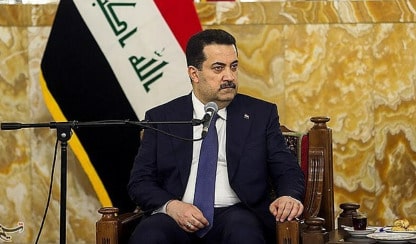Iraqi Prime Minister Mohammed Sudani Sunday announced a new campaign to address the impacts of climate change. During a two-day climate conference in Basra, Sudani promised to take extreme measures to meet a third of the nation’s electricity demands using solely renewable energy, reduce carbon emissions and protect Iraq’s biodiversity.
The UN released the speech made my Special Representative of the Secretary-General for the UN Assistance Mission for Iraq Jeanine Hennis-Plasschaert highlighted the extreme water crisis of Iraq and described it as a “threat multiplier[]” and concluded that the country must “move towards a new, green economy.” According to the Stockholm International Peace Research Institute, there is also a causal link between climate change and Islamic State occupation in Iraq, and “addressing climate-related challenges should be an integral part of post-conflict reconstruction processes.”
The World Bank released a report in November 2022 declaring Iraq as one of the “most vulnerable countries to climate change” and detailing how carbon emissions from Iraq has almost doubled in the last decade. World Bank Mashreq Country Director Jean-Christophe Carret attributed large amounts of Iraq’s carbon emissions to “electricy, gas and oil operations” and said that delays in implementing reform will make it harder for Iraq to “cushion fiscal effects” of climate change.
Article: Iraq prime minister promises action against climate change
